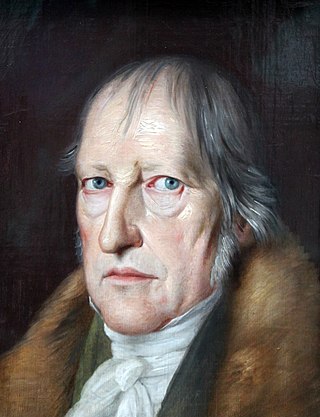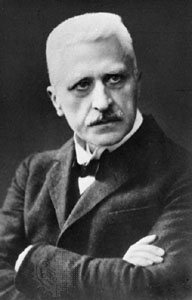Director
The Hegel Archives was founded in 1958 by Otto Pöggeler, who is a German representative of phenomenology and hermeneutics.
The Director of the Hegel Archives is actually Professor Walter Jaeschke, who is also the Editor of the publication of the Collected Works of Hegel.He is also the author of Reason in Religion: the Foundation of Religion in Hegel's Philosophy (1986).
Professor Jaeschke also assisted Dr. Peter C. Hodgson and a team of scholars at the University of California at Berkeley, who, in 1990, published a new translation of Hegel's Lectures on the Philosophy of Religion (1818-1831). This publication radically changed the direction of 20th-century Hegel studies, according to some researchers in the Hegel Society of America.
In the review Hegel Studien were published works by Otto Pöggeler, Ernst Bloch, Hans-Georg Gadamer, Martin Heidegger, Karl Löwith, Heinz Heimsoeth, Dieter Henrich, Annemarie Gethmann-Siefert, Walter Jaeschke, Robert Brandom, John Sallis, Robert Pippin. [1]

Georg Wilhelm Friedrich Hegel was a German philosopher and one of the most influential figures of German idealism and 19th-century philosophy. His influence extends across the entire range of contemporary philosophical topics, from metaphysical issues in epistemology and ontology, to political philosophy, the philosophy of history, philosophy of art, philosophy of religion, and the history of philosophy.

Bruno Bauer was a German philosopher and theologian. As a student of G. W. F. Hegel, Bauer was a radical Rationalist in philosophy, politics and Biblical criticism. Bauer investigated the sources of the New Testament and, beginning with Hegel's analysis of Christianity's Hellenic as well as Jewish roots, concluded that early Christianity owed more to ancient Greek philosophy (Stoicism) than to Judaism.

Johann Eduard Erdmann was a German religious pastor, historian of philosophy, and philosopher of religion, of which he wrote on the mediation of faith and knowledge. He was known to be a follower of Friedrich Schleiermacher, whom he studied under August Carlblom (1797-1877), and Georg Wilhelm Friedrich Hegel, whom he regarded as his mentor. Erdmann also studied the works of Karl Daub. Historians of philosophy usually include Erdmann as a member of the Right Wing of the Hegelian movement, a group of thinkers who were also referred to variously as the Right Hegelians (Rechtshegelianer), the Hegelian Right, and/or as the Old Hegelians (Althegelianer).

Johann Georg Hamann was a German Lutheran philosopher from Königsberg known as "the Wizard of the North" who was one of the leading figures of post-Kantian philosophy. His work was used by his student J. G. Herder as the main support of the Sturm und Drang movement, and is associated with the Counter-Enlightenment and Romanticism.

Rudolf Otto was a German Lutheran theologian, philosopher, and comparative religionist. He is regarded as one of the most influential scholars of religion in the early twentieth century and is best known for his concept of the numinous, a profound emotional experience he argued was at the heart of the world's religions. While his work started in the domain of liberal Christian theology, its main thrust was always apologetical, seeking to defend religion against naturalist critiques. Otto eventually came to conceive of his work as part of a science of religion, which was divided into the philosophy of religion, the history of religion, and the psychology of religion.

Wilhelm Dilthey was a German historian, psychologist, sociologist, and hermeneutic philosopher, who held Georg Wilhelm Friedrich Hegel's Chair in Philosophy at the University of Berlin. As a polymathic philosopher, working in a modern research university, Dilthey's research interests revolved around questions of scientific methodology, historical evidence and history's status as a science.

Walter Arnold Kaufmann was a German-American philosopher, translator, and poet. A prolific author, he wrote extensively on a broad range of subjects, such as authenticity and death, moral philosophy and existentialism, theism and atheism, Christianity and Judaism, as well as philosophy and literature. He served more than 30 years as a professor at Princeton University.

In late modern philosophy, neo-Kantianism was a revival of the 18th-century philosophy of Immanuel Kant. The neo-Kantians sought to develop and clarify Kant's theories, particularly his concept of the thing-in-itself and his moral philosophy.
The phenomenology of religion concerns the experiential aspect of religion, describing religious phenomena in terms consistent with the orientation of worshippers. It views religion as made up of different components, and studies these components across religious traditions in order to gain some understanding of them.
Georg Lasson was a German Protestant theologian, and a son of Adolf Lasson. He was a co-editor of Georg Wilhelm Friedrich Hegel's Sämtliche Werke in the Meiner edition. Although the result is not always praised today, his edition is useful to researches as he had access to manuscripts that have since been lost.

Walter de Gruyter GmbH, known as De Gruyter, is a German scholarly publishing house specializing in academic literature.
Ivan Soll is an American philosopher who is a Professor Emeritus in the Department of Philosophy at the University of Wisconsin–Madison in the United States. He taught at UW from 1965 until his retirement in May 2011. His teaching and research focused on the philosophy of Friedrich Nietzsche, German philosophy in general, existentialism, aesthetics, and various figures of continental philosophy.
In philosophy, the absolute, in most common usage, is a perfect, self-sufficient reality that depends upon nothing external to itself. In theology, the term is also used to designate the supreme being.

Georg Wilhelm Friedrich Hegel's Lectures on the Philosophy of Religion outlines his ideas on Christianity as a form of self-consciousness. They represent the final and in some ways the decisive element of his philosophical system. In light of his distinctive philosophical approach, using a method that is dialectical and historical, Hegel offers a radical reinterpretation of the meaning of Christianity and its characteristic doctrines. The approach taken in these lectures is to some extent prefigured in Hegel's first published book, The Phenomenology of Spirit (1807).

Ludwig Andreas von Feuerbach was a German anthropologist and philosopher, best known for his book The Essence of Christianity, which provided a critique of Christianity that strongly influenced generations of later thinkers, including Charles Darwin, Karl Marx, Sigmund Freud, Friedrich Engels, Mikhail Bakunin, Richard Wagner, Frederick Douglass, and Friedrich Nietzsche.
"The Oldest Systematic Program of German Idealism" is a fragmentary 1796/97 essay of unknown authorship. The document was first published by Franz Rosenzweig in 1917. An English translation was made by Diana I. Behler.
Otto Pöggeler was a German philosopher. He specialized in phenomenology and commenting on Heidegger. In 1963 he authored the acclaimed Martin Heidegger’s Path of Thinking, one of the first rigorous attempts at tracing the development of Heidegger's thought. He also published a study of poetry of Paul Celan, and was director of the Hegel-Archiv at the Ruhr University in Bochum.

Georg Joachim Göschen was a German publisher and bookseller in Leipzig, Kingdom of Saxony, notable for typography and his publications of music and philosophy. He was the patriarch of the Goschen family, whose English branch rose to prominence as bankers and politicians, including the Viscounts Goschen and Goschen baronets.
Walter Jaeschke was a German philosopher, educated at Freie Universität Berlin and at the Technischen Universität Berlin, where he studied philosophy, history of religion, and sinology. He directed the critical Gesammelte Werke edition of the work of Georg Wilhelm Friedrich Hegel. He also co-directed critical editions of the works of Friedrich Heinrich Jacobi and Friedrich Daniel Ernst Schleiermacher. Jaeschke is known in particular for his scholarship on Hegel's philosophy of religion.
The journal »Hegel-Studien« was established in 1961 in cooperation with the Hegel Commission of the German Research Foundation and is published once a year. It has been developed in close connection with the historical-critical edition of »Georg Wilhelm Friedrich Hegel, Gesammelte Werke«. The journal embraces peer reviewed articles, predominantly in German, but also in English and French.











